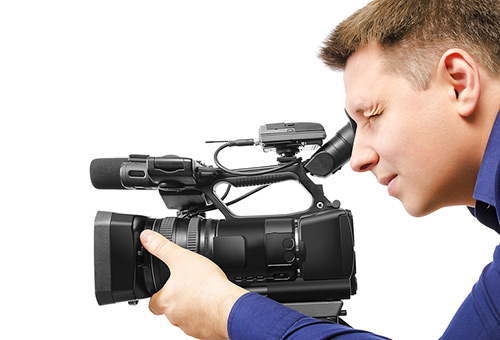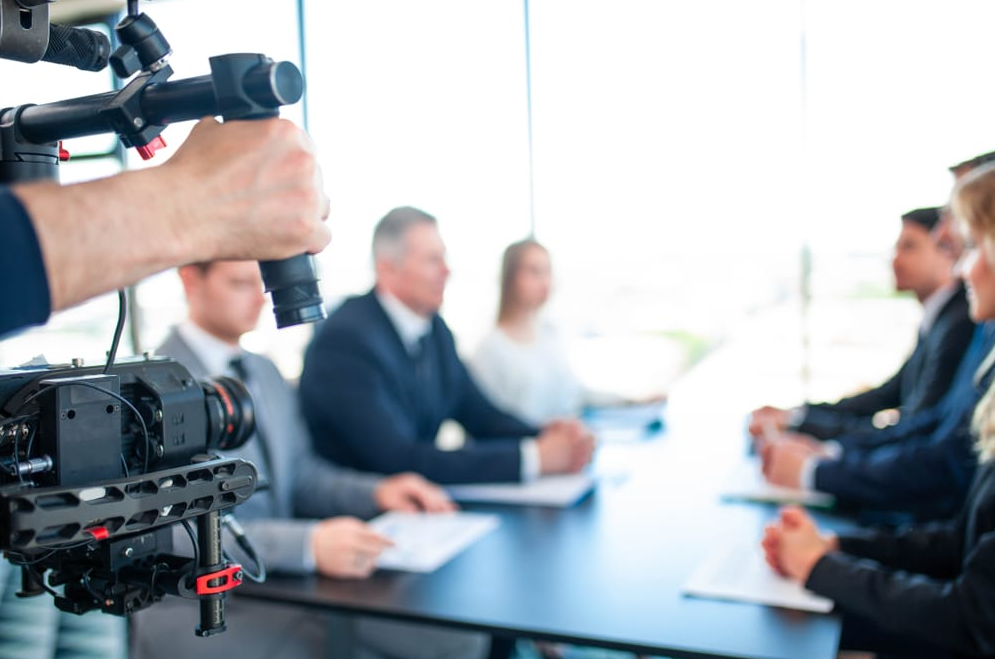Reliable Legal Videography to Enhance Case Presentations.
Reliable Legal Videography to Enhance Case Presentations.
Blog Article
The Role of Legal Videography in Depositions and Tests
Lawful videography has emerged as an essential device in both depositions and tests, providing a diverse approach to documenting witness testimonies. As lawful professionals significantly identify its worth, it motivates a much deeper exam of exactly how these visual documents can affect juror understandings and test end results.

Significance of Legal Videography
Legal videography plays an essential role in the documents and presentation of depositions and tests. This specific field incorporates technological abilities with lawful knowledge to create a trusted document of procedures that can dramatically affect situation end results. The appearance of legal videography improves the understanding of witness testimony, permitting jurors and judges to observe not only the talked words yet additionally the attitude, feelings, and body movement of the witnesses.
In enhancement, legal videography gives an unbiased account of events, minimizing the possibility for misconception that can happen with written records alone. This visual paperwork acts as a crucial tool during trial presentations, facilitating a clearer and more convincing narrative for both complainants and defendants. The ability to replay video clip sections throughout court proceedings makes it possible for legal groups to emphasize crucial factors, reinforcing their debates effectively.
The importance of lawful videography prolongs past the court room; it additionally plays a vital duty in protecting proof for future referral, whether for charms or additional lawsuit. As such, its combination into the lawful process is vital for ensuring a reasonable and accurate depiction of the realities, eventually adding to the quest of justice.

Process of Legal Videography
While catching the subtleties of depositions and trials, the process of lawful videography involves numerous important actions that make certain high-grade, precise recordings. Initially, a specialist lawful videographer prepares by assessing the situation products and understanding the certain requirements of the deposition or test. This preparation consists of acquainting themselves with the individuals and the context, which helps in recording relevant information.
On the day of the recording, the videographer establishes the essential equipment, which normally includes high-def cams, microphones, and proper lighting. Making certain optimal angles and sound high quality is critical, as it directly affects the effectiveness of the recording. The videographer connects with attorneys and participants to develop methods, guaranteeing that everyone comprehends the recording process.
During the deposition or test, the videographer meticulously videotapes the proceedings, paying very close attention to both verbal and non-verbal hints. This consists of capturing the demeanor and reactions of witnesses and attorneys. After the session ends, the videographer might modify the video footage for quality and conformity with legal standards, producing a final item that precisely shows the proceedings for future recommendation and use in lawful contexts.
Advantages in Depositions
The incorporation of videography in depositions offers many benefits that enhance the total process of collecting proof. One key benefit is the capability to capture witness statements with aesthetic and auditory integrity, giving a more exact depiction of the witness's attitude, tone, and body language. This multidimensional strategy permits lawyers and juries to evaluate credibility better than standard written transcripts alone.
Additionally, videographed depositions serve as an effective tool for protecting testament. Must a witness come to be inaccessible for trial, their tape-recorded deposition can be played in court, making certain that their proof stays obtainable and relevant. This element considerably reduces the danger of shedding essential information that can affect case end results.

Last but not least, videography boosts the general expertise of the deposition procedure, instilling self-confidence in customers relating to the thoroughness of their lawful depiction (legal videography). By leveraging innovation, attorneys can significantly boost the performance of depositions
Influence On Trials
In lots of tests, the combination of videography can substantially influence the discussion of proof and the jury's perception. Lawful videography captures witness statements and essential evidence in a vibrant format, allowing jurors to involve with the material on several levels. This visit their website visual element enhances the narration aspect of a test, providing context and emotional vibration that conventional text-based proof might do not have.
Furthermore, video clip recordings can function as effective devices for impeachment during interrogation. When inconsistencies arise between a witness's prior statements and their courtroom statement, video clip proof offers an unbiased referral that can sway jurors' point of views. This immediacy and clearness can strengthen the integrity of an event's narrative while all at once threatening opposing debates.

Future Trends in Legal Videography
As we look toward the future of lawful videography, a number of emerging fads promise to reshape its role within the court. One considerable pattern is the assimilation of artificial knowledge (AI) in video analysis and editing and enhancing. AI can improve the procedure of determining key moments in recorded depositions, permitting attorneys to swiftly access pertinent material, consequently boosting performance in case prep work.
Additionally, the rise of virtual fact (VIRTUAL REALITY) and augmented reality (AR) technologies is try this out anticipated to change exactly how jurors experience evidence. legal videography. By immersing jurors in a substitute setting, these modern technologies can give an extra extensive understanding of complex circumstances, bring about even more educated considerations
In addition, the boosting demand for remote depositions, increased by the COVID-19 pandemic, will likely proceed. Lawful videographers will certainly need to adapt to new software application and platforms to make certain top quality recordings in online setups.
Last but not least, the expanding focus on data security will necessitate more stringent protocols for keeping and sharing video evidence. As the lawful landscape progresses, legal videographers need to stay abreast of these patterns to maintain their significance and efficiency in the judicial process.
Final Thought
In recap, lawful videography serves an important function in the judicial procedure, boosting the integrity of depositions and trials. By catching the nuances of witness testimonies, this tool not just protects important evidence however additionally help in presenting info successfully to jurors. The value of visual paperwork in examining reputation and promoting interrogation can not be overstated. As technology remains to progress, legal videography is poised to further transform its role within the legal landscape.
Report this page